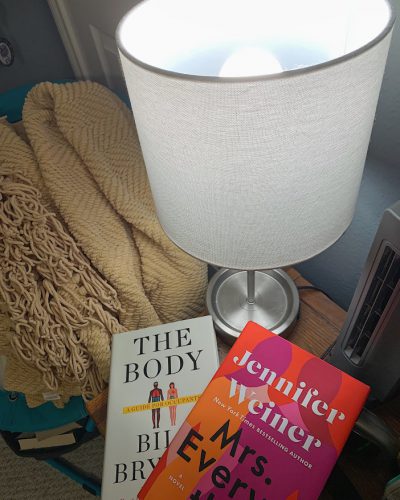We partnered with Stephanie at Nourishing Flourishing and were very happy to hear about her experience using NorbSLEEP and NorbFOCUS.
Check out the post below:
* Disclaimer: by no means am I any professional to give advice by this, but I have done research and had experiences with what I discuss.
Light: the main source of light for all living organisms. It’s what gives life to plants through photosynthesis to feed us and provide oxygen, stimulates vitamin D production in our bodies, as well as regulates our sleep cycle! Humans lived with solely natural light until 1879 when Thomas Edison invented the light bulb. Since our industrial revolution, much has changed. In fact, people now spend 91% of their time indoors, that is, AWAY from sunlight. With this significant increase indoors under artificial lighting, there have been some observed detrimental health effects. The first of which includes that 61% of people now have/wear some type of correction in/on their eyes. Artificial light, especially blue light, causes our eyes to strain and eventually damage our retina . Additionally, artificial light’s low quality spectral patterns does not reach our visual cortex to perceive images. The retina is in constant communication with our brain, so when that becomes damaged, our focus is also lost, hence less productivity. In fact, there have been studies in grade school classrooms where the school has put environmentally improved light bulbs in the classroom and the productivity increased! Unfortunately, with so many schools and businesses on a tight budget, improved light bulbs are not a priority on the list. The best we can do is at least have better light in our homes! Natural light also improves mood, hence the reason people use light therapy to combat seasonal depression during low sunlight times. The low quality light we receive indoors may just be one of the many environmental causes for increased mental health disorder and special needs cases today.
Another critical benefit of natural light is helping to regulate our sleep. Artificial light gets sent to our circadian pathways instead of the visual cortex, so when we intake it close to bed time, melatonin is suppressed *the hormone released from our pineal gland to regulate our circadian rhythm by decreasing our body temperature and respiration rate etc.*. Constant low quality sleep increases the risk for type 2 diabetes, heart disease, and cancer. It also influences mood!
I personally have been educating myself and making small changes in limiting my screen time/artificial light exposure, and increasing the natural light I receive. The screen time option on many phones nowadays helps you be mindful of app usage, as well as give you forced downtime on whatever schedule works best for you. I try to not look at my phone, or at least mindlessly scroll, 45 minutes before bed, but I would love to make this an hour or two before bed. The Norb Sleep light (https://norblighting.com/sleep/) has also really helped limiting bright lights close to bedtime. I keep this bulb in my room and use it instead of my lights when I am doing my nighttime hygiene routine, meditation, and reading. It gives just enough light, but is dim and cool enough to keep you winding down :))
Ways I block blue light throughout the day is keeping my phone and laptop on night shift and using blue light glasses whenever I will have longer screen exposure. I also use the Norb Focus light bulb on my desk (https://norblighting.com/focus/)!

I hope this helps and please feel free to contact me regarding any other questions you may have. Also, don’t forget to use my discount code NOURISH10 for 10% off your purchase with Norb!!
Sources
Davis, C. (2014, March 24). Shining Light on What Natural Light Does For Your Body. Retrieved July 16, 2020, from https://sustainability.ncsu.edu/blog/changeyourstate/benefits-of-natural-light/
Statistics Netherlands. (2013, September 20). More than 6 in 10 people wear glasses or contact lenses. Retrieved July 16, 2020, from https://www.cbs.nl/en-gb/news/2013/38/more-than-6-in-10-people-wear-glasses-or-contact-lenses
Why CFL’s Aren’t Such a Bright Idea. (2014, September 15). Retrieved July 16, 2020, from https://www.psychologytoday.com/us/blog/mental-wealth/201409/why-cfls-arent-such-bright-idea

